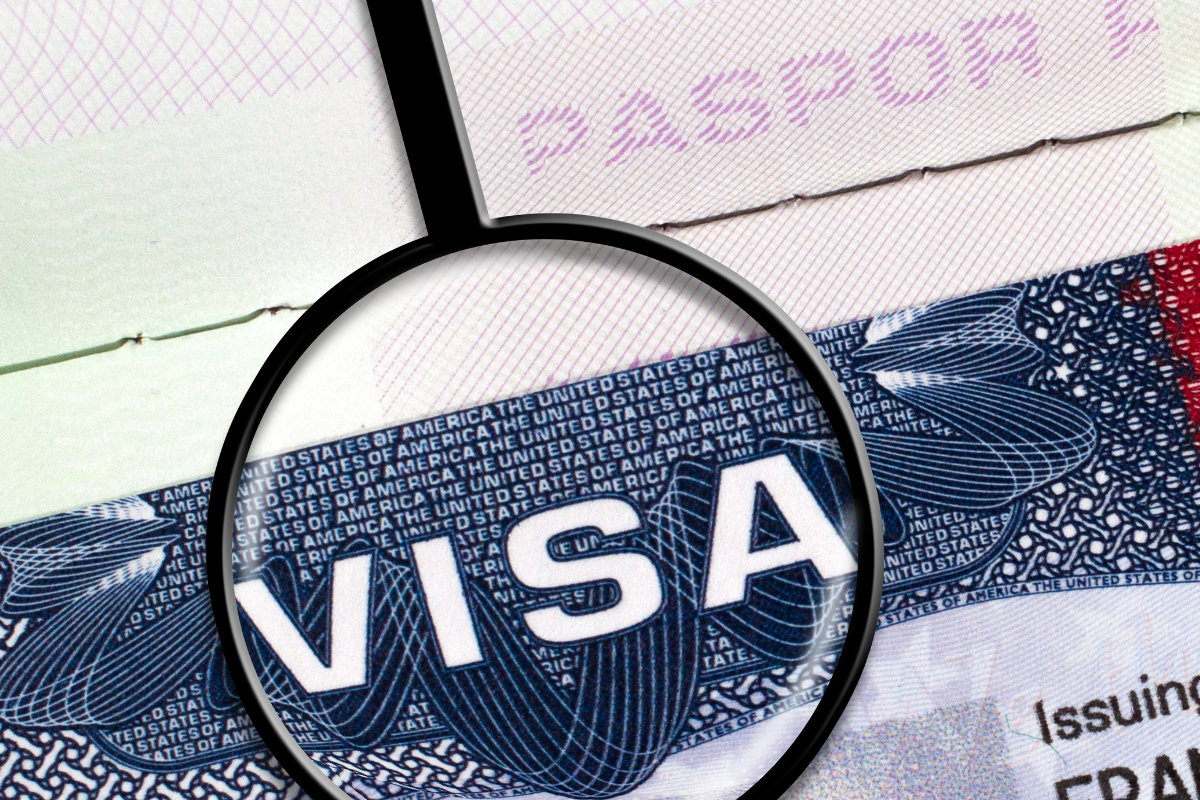The UK Student Visa, formerly known as the Tier 4 visa, allows international students to study at recognized institutions across the United Kingdom. It is one of the most sought-after visas for students aiming to pursue world-class education in the UK.
Understanding the UK Student Visa fee is crucial for international students because it directly impacts financial planning before applying. Tuition fees, accommodation, and living costs are already significant, so being well-informed about visa expenses helps avoid last-minute stress.
As of 9 April 2025, the UK government announced updates to the visa fee structure. The UK Student Visa fee for applications made outside the UK is now £527 (approximately ₹56,000), while extensions or switches from within the UK cost £490 (approximately ₹52,000). These changes are important for Indian students and others budgeting for their study abroad journey.
At Genius Study Abroad, we ensure students are always updated with the latest visa requirements and costs to plan their journey smoothly.
Read More : 1-Year Master in UK for International Students 2025
Types of Student Visas & Where Fees Vary

When planning to study in the UK, it’s important to know that visa fees vary depending on the type of study you’re pursuing.
1. Student Visa (Long-term, Academic Study)
This is the most common visa for international students aged 16 and above who are enrolled in higher education.
The UK Student Visa fee for applications outside the UK is currently £527, while extensions or switches within the UK cost £490.
2. Child Student Visa (Ages 4–17)
Designed for younger students attending independent schools in the UK. The UK Student Visa fee for children is the same as adult student visas (£527), but applicants need to show proof of guardianship and accommodation.
3. Short-Term Study Visa (English Language Courses, up to 11 months)
For students focusing only on English language programs, the short-term study visa is more affordable. The fee is £200 for up to 6 months and £200–£400 for 11 months, depending on the course duration.
This makes it an attractive option for students who want to enhance their English without committing to a full academic program.
4. Visitor Visas for Short Study (up to 6 months)
If you’re only attending a short training or exchange program, you may apply for a visitor visa, which costs £115. However, this doesn’t grant the same rights as a regular student visa, such as work permissions.
At Genius Study Abroad, we guide students in selecting the right visa type, ensuring they don’t overspend on unnecessary fees and always stay compliant with UK regulations.
Read More : Best UK Education Consultants in India – Genius Study Abroad
Latest UK Student Visa Fee: What You Pay
Staying updated on costs is essential for budgeting your study abroad journey. As of 9 April 2025, the UK government revised the UK Student Visa fee structure. Here’s what you can expect to pay depending on the visa type:
Application Fee (Post-April 2025 Update):
- Student Visa (outside UK): £527 (approx. ₹56,000)
- Student Visa (inside UK – extension/switch): £490 (approx. ₹52,000)
- Child Student Visa: £527 (same as adult student visa)
- Short-Term Study Visa (English language up to 11 months): £200–£400
- Visitor Visa for short study (up to 6 months): £115
Immigration Health Surcharge (IHS):
Beyond the application fee, students must also pay the IHS. This charge gives access to the UK’s National Health Service (NHS) during your stay.
- Current IHS: £776 per year of study.
- Example: For a 2-year master’s program, the total IHS would be £1,552.
- Payment: Collected online at the time of visa application.
Before vs After the Fee Hike:
- Before April 2025: Student visa (outside UK) cost £490.
- After April 2025: Increased to £527, a rise of £37 (~₹4,000).
- Short-term study and visitor visas remained largely unchanged, while the IHS has been steadily increasing since 2023.
For many Indian students, this rise in the UK Student Visa fee means careful planning is even more important. At Genius Study Abroad, we help students calculate the total visa cost upfront so there are no surprises later.
Read More : Oxford University Fees for 2025-26: Course Costs and Top Programs
Conversion & Cost in Indian Rupees (or Local Currency)
For Indian students, the UK Student Visa fee feels more real when converted into rupees. Based on the April 2025 exchange rate (£1 ≈ ₹106):
- Student Visa (outside UK): £527 ≈ ₹56,000
- Student Visa (inside UK – extension/switch): £490 ≈ ₹52,000
- Child Student Visa: £527 ≈ ₹56,000
- Short-Term Study Visa (up to 11 months): £200–£400 ≈ ₹21,000–₹42,000
- Visitor Visa (up to 6 months): £115 ≈ ₹12,000
- IHS (per year): £776 ≈ ₹82,000
Dependents:
Each dependent (spouse or child) applying with you must also pay the UK Student Visa fee and the IHS.
For example, if you are pursuing a 2-year master’s program with your spouse, the combined IHS alone would be £1,552 + £1,552 = £3,104 (≈ ₹3.3 lakh).
Exchange Rate Fluctuations:
Visa costs in INR are not fixed since they depend on the pound-rupee exchange rate. A sudden rise in GBP could make your visa costlier overnight.
For instance, if £1 rises from ₹106 to ₹110, the same £527 visa would increase from ₹56,000 to ₹58,000.
Other Cost Factors:
- Visa Centre Charges: VFS centres in India may charge ₹1,500–₹2,500 for services like SMS updates, premium lounges, or courier return.
- Document Translation: If your documents aren’t in English, certified translation can cost ₹500–₹2,000 per page.
- Biometric Fees: Basic biometrics are included, but priority appointments may cost extra (₹5,000–₹8,000).
At Genius Study Abroad, we advise students to budget at least ₹1.2–₹1.5 lakh per applicant (including the UK Student Visa fee, IHS, and additional charges) to avoid last-minute financial stress.
Read More : Best IELTS Coaching in Delhi 2025 | Online & Offline Classes
Financial Requirements & Minimum Funds Needed

Paying the UK Student Visa fee is just one part of the process. To actually get approval, students must also prove they can cover their tuition and living expenses. The UK government has strict financial requirements to ensure students won’t struggle once they arrive.
Living Expenses (as of 2025):
- Studying in London: £1,334 per month (up to 9 months) → £12,006 annually (≈ ₹12.7 lakh)
- Studying outside London: £1,023 per month (up to 9 months) → £9,207 annually (≈ ₹9.8 lakh)
Course Fees & Tuition:
- Students must show they can pay one year’s tuition fees or the remaining course fees if less than one year.
- Example: If tuition is £15,000 and you’ve already paid £5,000, you must show proof of £10,000 plus living expenses.
Proof of Funds Time Frame:
- Money must be held in your account for at least 28 consecutive days before applying.
- The end date of this 28-day period should not be more than 31 days before your visa application.
Acceptable Proof of Funds:
- Bank statements (in your name or parent/guardian’s name).
- Education loan letters from recognized banks confirming loan sanction.
- Fixed deposits (if liquid and withdrawable).
- Official financial sponsorships (scholarships, government/organizational funding).
For dependents, you must show additional funds:
- £845/month (London) or £680/month (outside London) for each dependent, for up to 9 months.
At Genius Study Abroad, we don’t just help with the UK Student Visa fee process but also guide students on arranging proof of funds in the right format so that visa officers have no reason to doubt financial stability.
Read More : Best Consultancy in India for Abroad Studies | Top Study Abroad Experts 2025
Step-by-Step Application Process & When Fee Paid
Applying for a UK student visa involves multiple steps, and knowing when and how the UK Student Visa fee is paid helps students avoid delays. Here’s the complete breakdown:
1. Obtain CAS (Confirmation of Acceptance for Studies)
Before starting the visa process, students must secure a CAS from their chosen UK university. This electronic document includes your course details, tuition fees, and a unique reference number required for the application.
2. Fill Out the Visa Application Form Online
The visa application is completed on the official UK Government website. Here, applicants must enter personal, academic, and financial details.
3. Pay the UK Student Visa Fee
At the end of the online form, applicants pay the UK Student Visa fee (currently £527 for applications outside the UK). Payment is made online using an international debit/credit card or online banking. The payment receipt is generated instantly.
4. Pay the Immigration Health Surcharge (IHS)
Immediately after paying the visa fee, students are redirected to pay the IHS (£776 per year). This ensures access to the UK’s healthcare system during your stay.
5. Book a Biometric Appointment
Once fees are paid, applicants must book an appointment at a local VFS visa application centre for biometrics (fingerprints and photographs). Priority or super-priority services may be booked here for faster results, with extra charges.
6. Submit Documents
Applicants upload required documents online (CAS, proof of funds, passport, academic records, English test scores, etc.) or carry them to the visa centre during the biometric appointment.
At Genius Study Abroad, we walk students through each stage—right from paying the UK Student Visa fee to document submission—ensuring the application is error-free and stress-free.
Read More : Top 5 Study Abroad Consultants in Delhi
Processing Time, Priority & Super-Priority Services
After paying the UK Student Visa fee, the next big question for students is: How long will it take to get a decision? Processing times can vary depending on the service chosen.
- Standard Processing Times
- Most student visa applications from outside the UK are processed within 3 weeks (15 working days).
- Applications made inside the UK for extensions or switches usually take 8 weeks.
- These timelines exclude delays caused by missing documents or extra checks.
- Priority Service
- Cost: An additional £500 on top of the standard UK Student Visa fee.
- Turnaround: Decisions are usually made within 5 working days.
- Best for: Students with approaching course start dates who need faster approval.
- Super-Priority Service
- Cost: An additional £1,000 on top of the visa fee.
- Turnaround: A decision is provided within 24 hours (next working day) after the biometric appointment.
- Availability: Not offered in all countries or at all VFS centres, so applicants should check availability before opting.
For Indian students, the choice between standard, priority, and super-priority often depends on timelines and budget. At Genius Study Abroad, we advise whether paying extra on top of the UK Student Visa fee is truly necessary, or if standard processing will suffice.
Read More : Best IELTS Coaching in Dwarka | Genius Study Abroad
Other Costs & Hidden Charges to Budget For

While the UK Student Visa fee and IHS are the biggest expenses, students often overlook smaller but important charges that can add up quickly. Planning ahead helps avoid last-minute surprises.
- Visa Centre Service Charges
- VFS centres in India offer add-on services like premium lounges, SMS updates, or document courier.
- Costs range from ₹1,500–₹5,000 depending on the package selected.
- Tuberculosis (TB) Test
- Mandatory for Indian students staying longer than 6 months.
- Approved clinics in India charge between ₹2,000–₹3,000 per test.
- English Language Tests
- IELTS UKVI or equivalent test is often required for admission and visa.
- Fees are around ₹16,500–₹17,000 per attempt.
- Translation & Sealing of Documents
- Documents not in English must be officially translated and sealed.
- Costs: ₹500–₹2,000 per page, depending on complexity.
- Travel & Courier of Documents
- Students sometimes need to courier original transcripts or visa papers internationally.
- International courier services can cost ₹2,500–₹6,000 per package.
- Insurance
- While the IHS covers NHS services, students may still need travel insurance for their journey to the UK.
- Costs: ₹2,000–₹5,000 depending on duration and coverage.
At Genius Study Abroad, we encourage students to budget an extra ₹20,000–₹30,000 in addition to the UK Student Visa fee to comfortably cover these hidden costs.
Read More : 10 Highest Paying Part Time Jobs in The UK 2025
Common Mistakes Applicants Make Regarding the UK Student Visa Fee
Even experienced students sometimes face challenges with visa applications due to oversight on fees. Being aware of common mistakes can save time, money, and stress.
1. Underestimating Total Cost
Many applicants calculate only the UK Student Visa fee and forget to include the Immigration Health Surcharge (IHS), living expenses, tuition, and hidden costs like document translation, TB tests, or courier charges. This often leads to last-minute financial stress.
2. Waiting Too Late / Forgetting Priority Service Deadlines
Students sometimes assume standard processing is enough and only realize late that they need priority or super-priority services for approaching course start dates. Missing deadlines can delay admission or force expensive last-minute payments.
3. Incorrect Exchange Rate Estimates
Visa costs in INR fluctuate with GBP/INR exchange rates. Using outdated rates can result in insufficient funds in your account when proof of funds is submitted, leading to visa rejection or delays.
4. Incomplete Financial Documents
Applicants occasionally provide bank statements, loan letters, or sponsorship proofs that are incomplete, unclear, or do not meet the 28-day holding requirement.
Even a minor mistake can result in visa refusal, despite having sufficient funds to cover the UK Student Visa fee and other expenses.
At Genius Study Abroad, we guide students to calculate the full cost, confirm deadlines, and prepare proper documentation so that paying the UK Student Visa fee is just the first step in a smooth application process.
Tips to Save Money & Plan Your Budget Wisely

Paying the UK Student Visa fee is a significant investment, but with careful planning, students can manage costs effectively. Here are practical tips:
1. Apply Early
Submitting your visa application well before your course start date helps avoid urgent priority or super-priority service charges. Early applications reduce stress and prevent last-minute fee surges.
2. Use Official Exchange Rate Estimates
Always check the official GBP/INR rate when calculating your total costs. Using outdated or unofficial rates can lead to underfunding, causing delays or additional transfers.
3. Consider Short-Term Study Visa if Applicable
If your goal is to attend an English language course or a short program, a short-term study visa can save thousands. The UK Student Visa fee for short-term courses is significantly lower than long-term academic visas.
4. Compare Priority vs Super-Priority Only if Necessary
Not every student needs expedited processing. Evaluate whether your course start date truly requires priority or super-priority service, which can add £500–£1,000 on top of the standard UK Student Visa fee.
5. Plan for Hidden Costs
Include visa centre charges, document translation, TB tests, and courier expenses in your budget to avoid surprises. A small buffer of ₹20,000–₹30,000 ensures smoother planning.
At Genius Study Abroad, we help students map out the entire expense plan, so paying the UK Student Visa fee and other costs is transparent, manageable, and stress-free.
Read More : Top 5 Hardest Cambridge Degree Courses to Get Into in 2026
Conclusion
The UK Student Visa fee is just one part of the overall cost for studying in the UK, but understanding it thoroughly can make your application smoother and more predictable.
From the application fee and Immigration Health Surcharge (IHS) to additional costs like document translation, TB tests, and visa centre charges, being aware of all expenses helps you plan better.
Always double-check updates from the UK Home Office, as fees and requirements may change, impacting your budget and documentation.
Start planning your finances early, prepare all necessary documents in advance, and consult experts like Genius Study Abroad to ensure a stress-free and successful UK student visa application process.
Contact No : 70 335 335 70
FAQs
1. How much is the UK Student Visa fee in 2025?
As of 9 April 2025, the fee for a Student Visa applied from outside the UK is £527 (≈₹56,000). Extensions or switches inside the UK cost £490 (≈₹52,000).
Short-term study visas and child student visas have different rates, ranging from £200–£527 depending on duration and type.
2. Is the fee the same for all countries or does it vary by where you apply from?
The UK Student Visa fee can slightly vary depending on the country of application due to local processing and administrative costs.
Indian students typically pay the amounts mentioned above, but applicants from some countries may see minor differences.
3. Does bringing dependents cost extra in visa fees or health surcharge?
Yes. Each dependent must pay the UK Student Visa fee (same as the main applicant for long-term visas) and an additional IHS (£776 per year). Dependents also require proof of funds for living expenses.
4. Can the fee be refunded if the visa is rejected?
Generally, the UK Student Visa fee is non-refundable, even if the application is refused. However, under very specific circumstances (like administrative errors), a partial refund may be requested, but it is rare.
5. Can you change your visa type after arriving in the UK?
It is possible to switch visas from within the UK in certain situations, for example, from a short-term study visa to a full Student Visa, but additional fees apply. Extensions or switches usually cost £490, plus the IHS.
At Genius Study Abroad, we help students understand all fees and requirements upfront, ensuring there are no surprises during the UK student visa application process.



